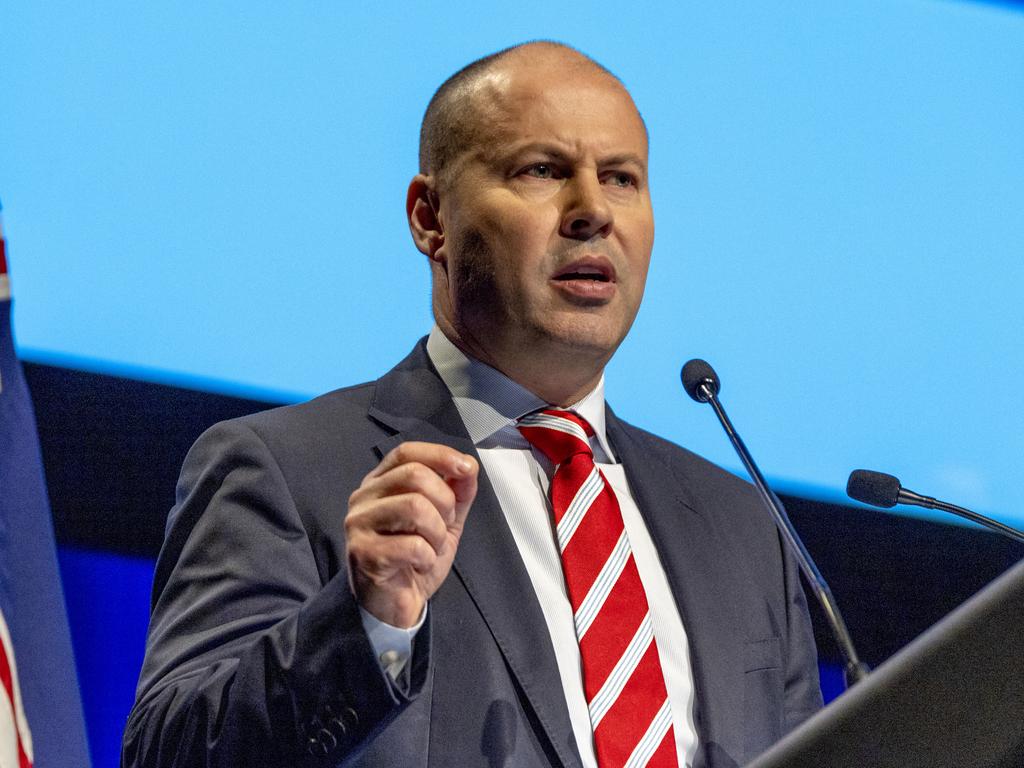Payment systems ‘revolution’ coming
RBA technocrats have been exercising ‘way too much power’ over the nation’s payment systems, senator Andrew Bragg says.

Reserve Bank technocrats have been exercising “way too much power” over the nation’s payment systems, and policymaking needs to be made in a broader context of the national interest, senator Andrew Bragg says.
As Josh Frydenberg officially announced the government’s plan to drag the regulatory environment from an era of cheques and cash to a new age of digital wallets, cryptocurrencies and Afterpay, Senator Bragg told The Australian payments policy “will be one of the biggest economic levers over the next decade, and it’s really important elected government runs it”.
The Liberal senator’s comments on Wednesday came as the Treasurer told the Australian Israel Chamber of Commerce there was “rapid change in the payments system”, describing a regulatory framework was no longer “fit for purpose” in a digital age.
“Ever since the Wallis inquiry in the late 1990s, our payments system hasn’t radically changed,” Mr Frydenberg said.
“So that is what we are now undertaking: a very significant change to the plumbing of Australia’s financial system.”
Opposition Treasury spokesman Jim Chalmers offered Labor‘s “in-principle” support for the government’s payment systems reform plans but said it was “long overdue” and the government had been dragging the chain on this.
UNSW associate professor Rob Nicholls, an expert in digital regulation, said the reforms were “overdue, but not long overdue”.
Dr Nicholls said moving too quickly to regulate when innovations such as buy-now-pay-later and crypto currencies were developing would have presented policymakers with a game of “whack-a-mole”.
Dr Nicholls did say, however, that reforms to how Afterpay and its ilk were regulated should be implemented as quickly as possible to prevent more Australians getting too much into debt.
“This is part of growing up; there has been some Australian-led innovation but as these companies move from start-up to mainstream, you need the rules to change to make sure consumers are protected,” he said.
The RBA’s limited legislative mandate, based on promoting stability, competition and efficiency in the payments system, has led the central bank to adopt a narrow approach to regulatory interventions. For instance, the central bank has not considered regulating the buy-now-pay-later sector as within the scope of its mandate.
Senator Bragg, who chairs the select committee on Australia as a technology and financial centre and recently led an inquiry into cryptocurrencies, will say at an Australian Payments Network event on Thursday – at which RBA governor Philip Lowe will also speak – that “it is not tenable that payments are overseen by regulatory bodies with a cautious institutional culture and narrow objectives”.
“Payments touch every aspect of national life. It can only be effective if a treasurer can provide the strategic direction that he is empowered to give,” he will say.
With offshore companies such as Apple, Google and the now US-owned Afterpay increasingly involved in how Australians pay for goods and services, Mr Frydenberg said he wanted to ensure that “Australia makes the rules, not Silicon Valley”.
The proposed payments systems reforms include three core sets of changes.
The first will be implementing a much broader definition of what is considered a “payment system”, which will allow services such as buy-now-pay-later to be subject to tightened regulatory oversight.
“We will therefore be able to get greater transparency around prices and be able to ensure a more level playing field for access to new members,” Mr Frydenberg said.
Under proposed changes, the Treasurer will have the power to designate new payment systems.
Second, companies offering the buying and selling of cryptocurrencies will be required to get an Australian Financial Services Licence, bringing this rapidly growing – but very lightly regulated – segment into line with other financial services providers, such as asset managers.
Third, Treasury will work with the Reserve Bank of Australia to assess the feasibility of having a national digital currency, backed by the RBA.
“Australia will be one of the first globally to take such action,” Mr Frydenberg said.







To join the conversation, please log in. Don't have an account? Register
Join the conversation, you are commenting as Logout